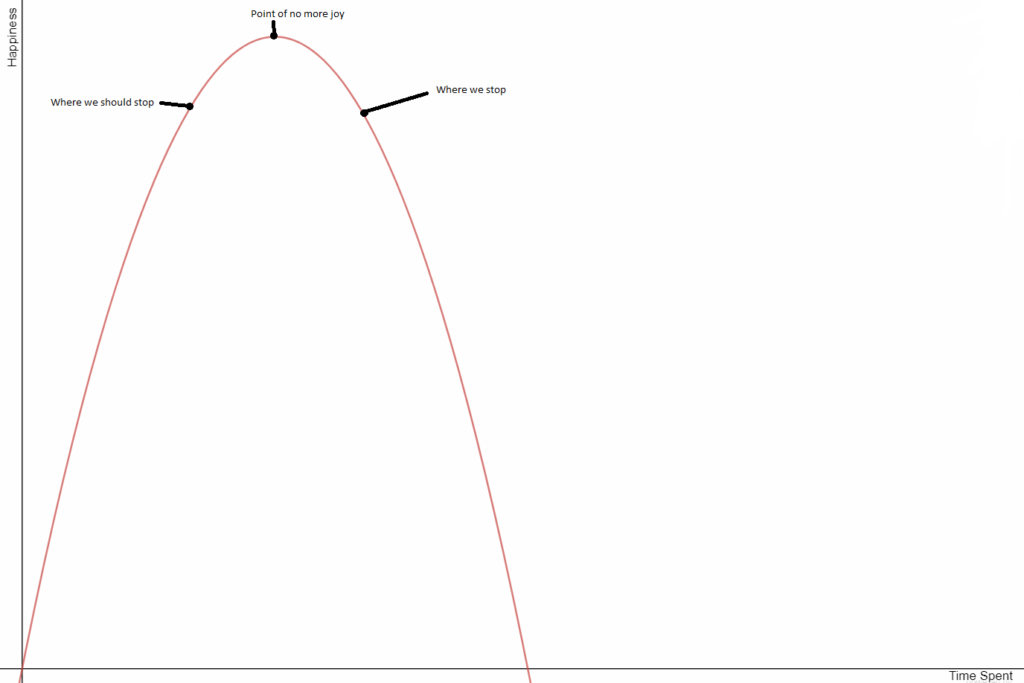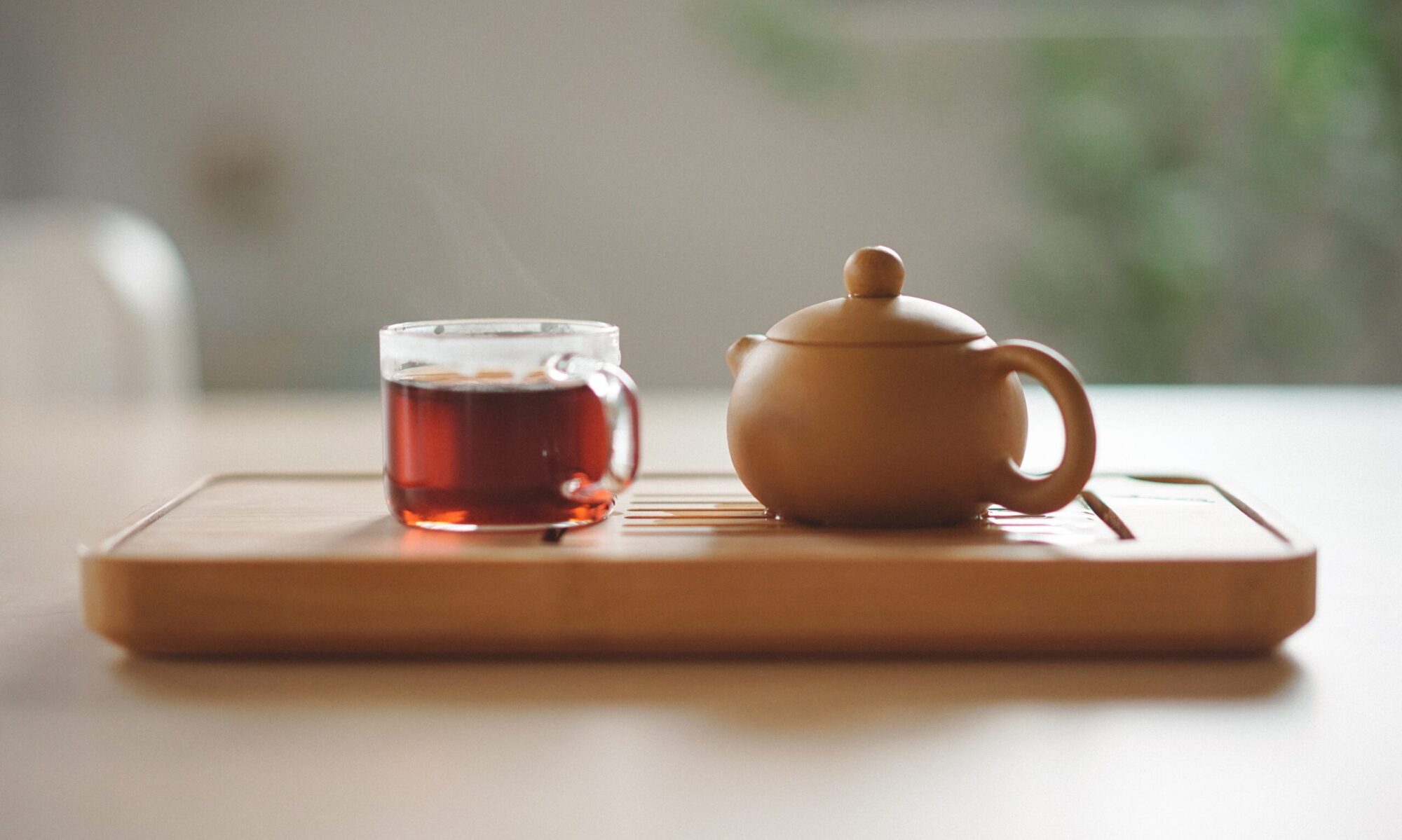The Happiness from Activities Changes Over Time
The first slice of pizza is far better than the last. Nobody has to ask “are you going to eat the first slice?” Because the answer is obviously yes. The first slice is hot, and you’re hungry. By the last one, the pizza is room temperature, and you’re full.
You get the most benefit when you start out, and as you spend more time you don’t get as much. Until eventually, you’d rather throw the last slice away than eat it. Watching tv, exercising, planning: most activities are like this. The first TV show is critically acclaimed and well written. It captures your focus from start to finish. After another ten shows, you realize that you’re flipping through channels, searching for an antidote to your boredom. You race off to do something, and it feels great. So you put more time in, but then stops delivering what you wanted out of it anymore. Until eventually it’s actively making your life worse.

This is true for specific activities, and for similar kinds of activities. Watching the same show ten times in a row will lose its luster quickly. But the same holds true for related things. Ten consecutive episodes of a show will start to drag. Ten detective shows in a row would be a burden to watch. A full day spent watching TV would be a bother more than a break.
Stop Doing What You Enjoy
To increase your happiness, stop doing things that you enjoy, while you still enjoy them. Our current mechanism for stopping catches us far too late. We usually quit once we’ve squeezed all of the joy out and start to taste bitterness. Instead stop while you are still enjoying it. Note when your enjoyment goes down a bit. Is it after one movie? How many slices until you aren’t excited about the next one? Eat pizza until you don’t enjoy a slice. Then take one less next time.
This is a difficult prescription to follow. Observe your experience when something goes from fun to a chore. Mark that moment. What changed? How much time had you spent? What were you feeling? To stop sooner, you’ll need a precise understanding of when an activity stops being worthwhile, and what that feels like. Instead of draining it dry, save some enjoyment for the next time you do that activity.
